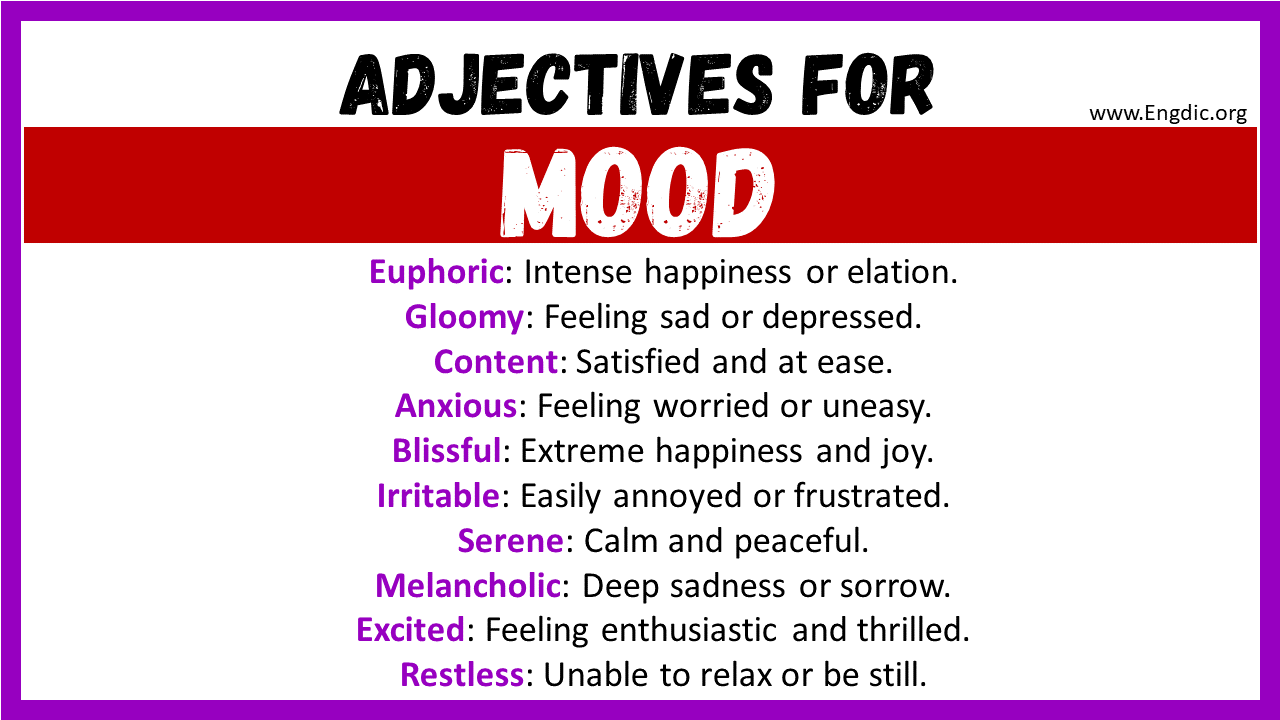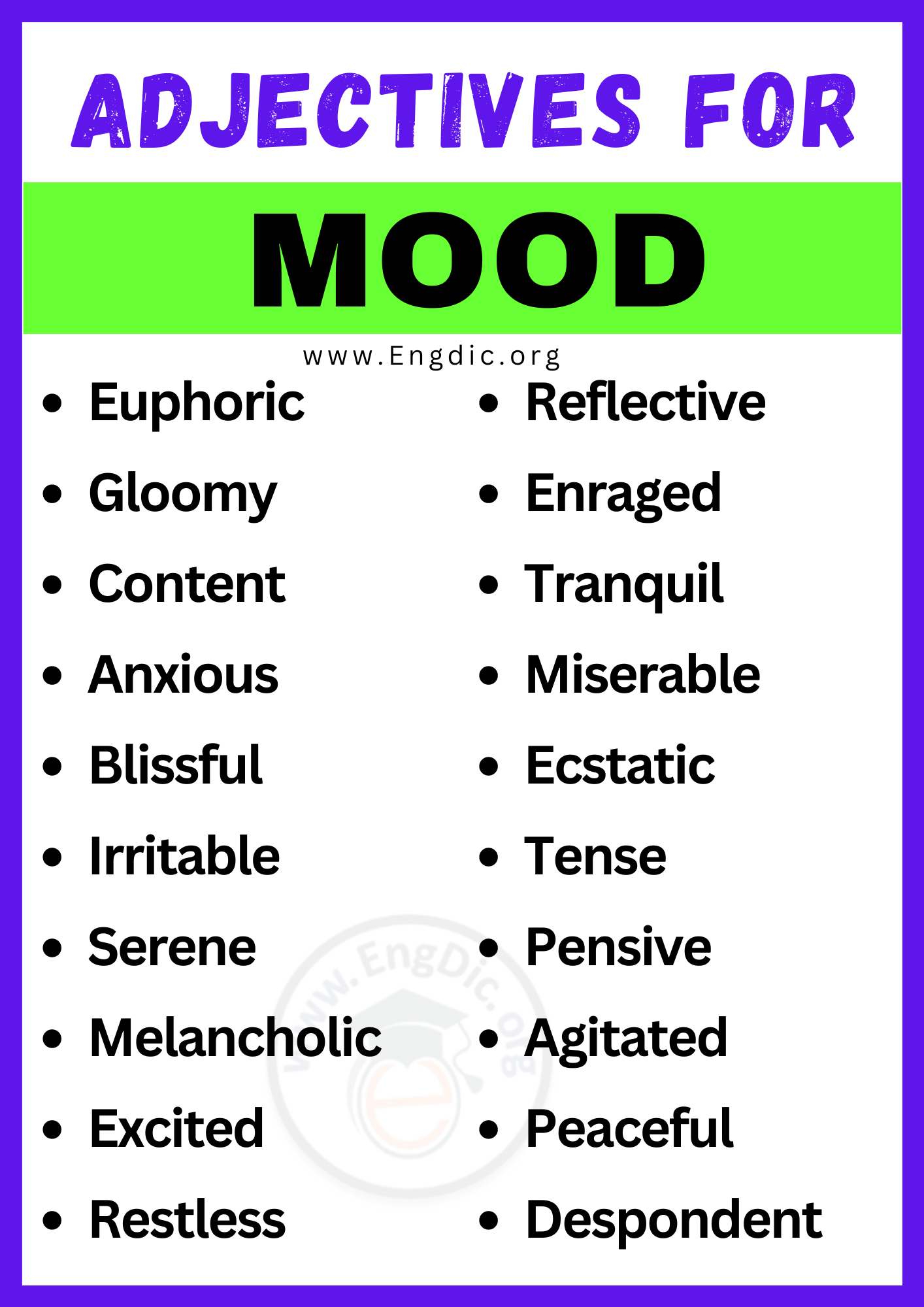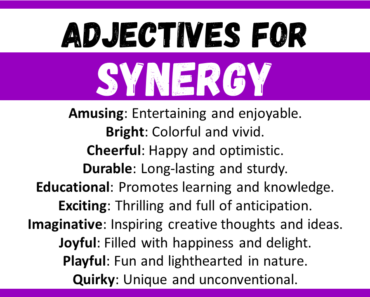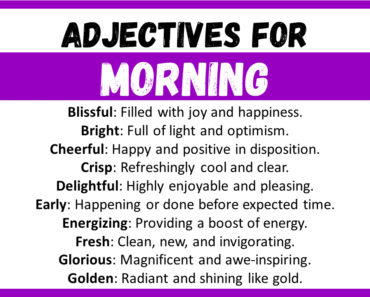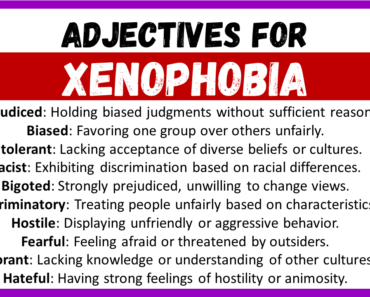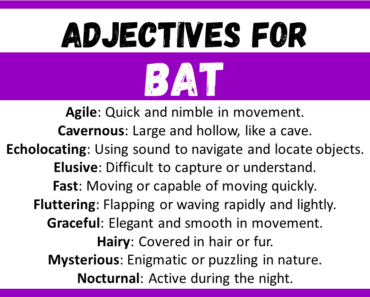Mood, in simple terms, refers to our emotional state or disposition at a given moment. It often serves as a lens through which we experience and interact with the world around us. Describing our mood accurately can sometimes be challenging, as emotions can be complex and ever-changing. In this blog post, we delve into a collection of words that help us express our various moods effectively. Whether it’s elation, melancholy, serenity, or agitation, these words serve as valuable tools to communicate our feelings with precision and clarity. Let’s embark on this journey of understanding and articulating our emotions more effectively.
Adjectives for Mood
Here are the 20 Most Popular adjectives for mood:
- Euphoric
- Gloomy
- Content
- Anxious
- Blissful
- Irritable
- Serene
- Melancholic
- Excited
- Restless
- Reflective
- Enraged
- Tranquil
- Miserable
- Ecstatic
- Tense
- Pensive
- Agitated
- Peaceful
- Despondent
Words to Describe A Mood With Meanings
- Euphoric: Intense happiness or elation.
- Gloomy: Feeling sad or depressed.
- Content: Satisfied and at ease.
- Anxious: Feeling worried or uneasy.
- Blissful: Extreme happiness and joy.
- Irritable: Easily annoyed or frustrated.
- Serene: Calm and peaceful.
- Melancholic: Deep sadness or sorrow.
- Excited: Feeling enthusiastic and thrilled.
- Restless: Unable to relax or be still.
- Reflective: Deep in thought or contemplation.
- Enraged: Extremely angry or furious.
- Tranquil: Peaceful and calm.
- Miserable: Very unhappy or wretched.
- Ecstatic: Overwhelming joy and excitement.
- Tense: Nervous or on edge.
- Pensive: Thoughtful and introspective.
- Agitated: Feeling restless or disturbed.
- Peaceful: Free from disturbance or conflict.
- Despondent: Deeply discouraged or hopeless.
Example Sentences for Mood Adjectives
- She felt euphoric after winning the competition.
- The rainy weather made her feel gloomy.
- He was content with his simple life.
- Waiting for the results made her anxious.
- They were in a blissful state of love.
- Don’t talk to him when he’s irritable.
- The view from the mountaintop was serene.
- He couldn’t shake off his melancholic
- She was excited to go on vacation.
- The baby was restless and couldn’t sleep.
- He sat by the window in a reflective
- He was enraged by their rude behavior.
- The sound of ocean waves was tranquil.
- The lost dog looked miserable in the rain.
- Winning the lottery made her ecstatic.
- The meeting made him feel tense and nervous.
- She sat alone, deep in pensive
- The loud noise made everyone agitated.
- Yoga helped her find inner peaceful
- He became despondent after losing his job.
Adjectives for positive mood:
- Joyful
- Radiant
- Optimistic
- Enthusiastic
- Empowered
- Inspired
- Grateful
- Vibrant
- Contented
- Playful
Adjectives for negative mood:
- Gloomy
- Frustrated
- Disheartened
- Anxious
- Agitated
- Depressed
- Irritated
- Worried
- Pessimistic
- Resentful
Adjectives for mood swings:
- Volatile
- Unpredictable
- Rollercoaster-like
- Oscillating
- Fluctuating
- Whimsical
- Inconsistent
- Unstable
- Variable
- Capricious
Related Posts:
FAQ’s
How do you describe tone and mood in writing?
Tone in writing refers to the author’s attitude or voice, while mood refers to the emotional atmosphere created for the reader through the text’s language and setting.
What are the 5 types of tones?
The five types of tones commonly used in writing are:
Formal ,Informal, Neutral , Optimistic , Pessimistic
Is fear a mood or a tone?
Fear is typically considered a mood rather than a tone in writing. Mood refers to the emotional atmosphere experienced by the reader, while tone relates to the author’s attitude or expression.
